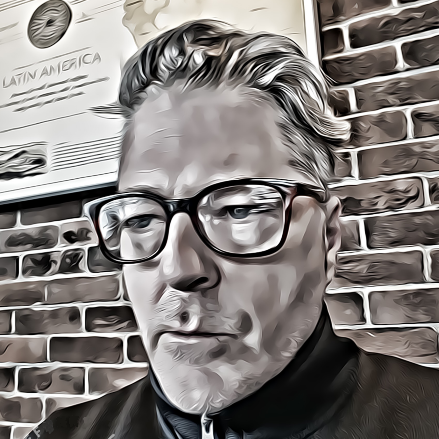
At issue: This is the final installment of my thoughts on Landman, the TV series by writer, director, and showrunner Taylor Sheridan. Season one has demonstrated exceptional prowess in cinematography, art direction, sound design, and musical composition—everything that attracts an audience. However, the writing is consumed by a relentless need to prove something that doesn’t need proving. The show’s lack of nuance ultimately “cuts off its nose to spite its face.” Beyond the blatant, frustrating, and clumsy anti-woke, anti-climate moralizing, a fundamental question lingers: Who stands out as the protagonist?
Landman is not a brilliant show, though it contains moments of brilliance. When I say brilliance, I don’t mean intellectual depth—I mean flashes of something bright and compelling. The character of Cooper is a case in point. Clearly a Myers-Briggs INFJ, he is introverted, quietly moral, and speaks only when necessary. He fits the archetype of the Western genre’s quintessential lone wolf—the man with the right values. But it’s not his father, Tommy, who instilled those values, even though Tommy will likely claim otherwise. Billy Bob Thornton will inevitably steal the limelight, as he always does. We’ll see.
Cooper’s frustration is a key theme. When he says, “Frustrating pattern we are establishing now,” he means it literally, but there’s also subtext beyond his awareness. He isn’t just worried about whether he gets the girl. He has endured chaos—his father, his mother, his sister, the company, death of his co-workers, violence against him that lands him in hospital care and now, personal challenges tied deeply to the wife of a co-worker who died on the job. We discover, Cooper is not a mere “worm” but is also a scientist who never completed his degree, an analytical mind consumed by frustrating patterns in his own self eshewing his academic career in favour of being a grease jockey on an oil rig for reasons yet to be determined. Add to that, a cultural divide— a corn-fed Texas boy—now navigating a world foreign to him in the plight of Hispanic Americans, which has literally brought him immense pain.
For all of Sheridan’s anti-woke preaching, he has stumbled upon an essential ingredient of a good story here. He is modernizing the Western, perhaps catering to the MAGA crowd, but is he truly harking back to the lone hero archetype, influenced by writers like Cormac McCarthy? The solitary man, standing against a world where everyone else is too self-absorbed to see what’s coming. Even Tommy, with his 30-second rants on smoking, drinking, diet and the environment, is self-absorbed. It’s overwrought. But that’s the price of admission—to endure Billy Bob Thornton’s ego.
Given the trajectory of the story, I wonder if Sheridan is setting the audience up for something unexpected. He has fed right-wing libertarian tropes, thrown out questionable anecdotes on climate and health, and primed his audience with red meat. But is he reeling them in only to flip the script? Could Landman ultimately reveal the essential truth that power corrupts?
This wouldn’t be unprecedented. Succession did something similar. Season one of Succession felt like a barrage of dumb people doing dumb things, seemingly pointless. But by season two, something deeper emerged. HBO’s Industry had a similar arc—why watch coke-snorting finance bros chase empty ambition? Yet, over time, the real story emerged. Perhaps Sheridan is laying the groundwork for something more profound, allowing the characters to evolve and reveal their real story. I hope so. Because a second season of more anti-woke grandstanding will be exhausting. That’s not a story—it’s an advertisement.
Ultimately, Landman is not Friday Night Lights. Taylor Sheridan does not operate with the nuance that Peter Berg approached the West Texas mythology. There is no delicate excavation of deeper truths with Landman—everything comes out full force, viscous and burning, like an oil fire that even Red Adair couldn’t extinguish. It’s a long way from McCarthy’s somber, beautiful vision of the lone man in a violent world. With McCarthy, violence was thematic, a meditation on existence. With Sheridan, we get gratuitous sex and violence as afterthoughts. Even Sergio Leone committed fully to his vision. Sheridan gives us half-measures against ridiculous backdrops—Texas National Guard storming in to bully the cartel in an absurdly unrealistic scenario.
Even the Coen brothers, in No Country for Old Men (based on Cormac McCarthy’s novel about West Texas), knew better than to indulge in this kind of nonsense. Sheridan has credited McCarthy as an influence, and Landman takes place in the same West Texas terrain. But Sheridan doesn’t treat McCarthy’s work with the same reverence. Instead, he drenches it in climate denialism and right-wing talking points, failing to engage with the deeper myths of the American West or the rugged spirit of the American experiment.
I’ll let you decide what makes sense and who is the real hero of this story.

Leave a Reply